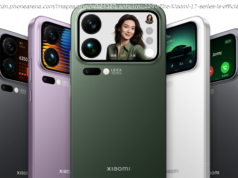These are the best phones released in 2017, at any price. Best mobiles money can buy right now.
Although the budget segment is the most active part of the Indian smartphone market, most people still pay a lot of attention to the high-end flagships. These phones might not sell as much, but they’re a look at the future for the rest of us, and bring the cutting edge of features and performance.
Brands like Apple and Samsung continue to dominate in this segment; newcomers have been getting better and better even as their prices keep rising, but the top of the market remains and old-boys-club for now. That could change by next year though, as we’re seeing brands like Xiaomi, Honor, and OnePlus all release very interesting devices, as you’ll see in our honourable mentions at the end of this piece.
Best Phones of 2017: Our Top Picks Under Rs. 20,000
To compile this list, we’ve restricted ourselves to phones that released in 2017, and then picked out the very best handsets available. Apart from the ones on our list, there are a few honourable mentions that aren’t included in the main count for a variety of reasons; one of them being that we have (as always) restricted the list to phones on which we’ve run our usual suite of tests, to ensure that all reviews and comparisons are fair and thorough.
With that in mind, here are the very best phones or the year, irrespective of budget, presented in no particular order.
1. Samsung Galaxy Note 8 Samsung’s current flagship, the Galaxy Note 8 ( Review) is a powerhouse with no real shortcomings. It boasts of incredible performance and a class-leading curved display. The S-Pen stylus is a useful add-on that works for taking notes as well as sketching and navigating the Android UI. The dual cameras are a first for Samsung and are a delight to use, delivering some of the highest quality photos and videos we’ve ever seen.
The Note 8 is priced well, and apart from slightly disappointing battery life, it will appeal to anyone who likes having a phone they can show off. If you want a smaller phone and don’t mind losing a few features, the Samsung Galaxy S8 ( Review) looks just as good and impressed us thoroughly when it was first launched.
2. iPhone 8 and iPhone 8 Plus The iPhone 8 and iPhone 8 Plus both ( Review) are excellent phones, though they look a little dated at this point. Performance is amazing, and so are the cameras.
There’s also the fact that Apple does a better job of delivering software updates than anyone else in the market. You get niceties like wireless charging, a feature that makes an appearance in the Apple camp for the first time, though Android devices have enjoyed it for many years.
Although these two models might feel the iPhone X’s poor cousins, the iPhone 8 and iPhone 8 Plus are extremely competent phones in their own rights, and you shouldn’t be afraid to buy either of them – we just wish Apple had thrown a fast charger in the box.
3. HTC U11 One of the best all-rounders at the top end of the market, the HTC U11 ( Review) will not let you down on any count. It’s a really good looking phone with a (still relatively unusual) „squeeze“ feature, and the camera performance is top notch, especially in low light.
The discrete subwoofer and 5.5-inch 1440×2560 screen are excellent for gaming and movies, and there’s more than enough power under the hood for even the most demanding activities.
4. Nokia 8 A (relatively) cheap phone that delivers outstanding performance, the Nokia 8 ( Review) also has a very good display, excellent battery life, and good cameras. Nokia’s first high-end phone since the brand’s return also has a very good screen and excellent battery life.
The cameras were developed with Carl Zeiss AG, the company behind many of Nokia’s iconic phone cameras over the years. Running stock Android, it comes with the promise of timely software updates. The “bothie” feature is a total gimmick, but the dual cameras do well enough in the right conditions.
5. LG G6 The LG G6 ( Review) was phone when it launched at the beginning of 2017, even though it used an older processor. It has an excellent screen and solid battery life. Its secondary camera was useful, and moving away from the LG G5’s modular design has led to significant improvement in build quality.
It was the first phone to launch with an 18:9 screen, and supports both HDR 10 and Dolby Vision HDR formats. It also has a Quad DAC audio enhancement system, although interestingly, this varies by region. LG improved on its design credibility dramatically with the LG V30+ ( Review) which was released later in the year, but its sub-par screen prevented it from displacing the G6 on our list.
6. Google Pixel 2 With recent sales dropping the price of the Pixel 2 ( Review) significantly, the phone’s value-for-money quotient has gone up a lot. Add to that one of the best cameras in the market, useful tweaks over stock Android, the promise of Google’s AI innovations, and the Pixel 2 starts to look like a real contender.
It loses out in terms of design, but software features and performance are fully up to the mark as well, and you’re going to get support and updates for longer than typical on Android. The larger Pixel 2 XL ( Review) looks more modern and has the same feature set, but its screen suffers from serious issues that knocked its overall score down considerably. Both Pixel 2 and Pixel XL 2 also seem to suffer from the same reliability problems as its predecessors.
8. iPhone X We saved the – well, at least the most expensive – for last. The iPhone X ( Review) packs all the goodness of the iPhone 8 Plus in a body that’s much easier to handle thanks to the (nearly) all-screen front. The AMOLED display – first on an iPhone – is perhaps the best we’ve seen on a smartphone, and Face ID works seamlessly for the most part. Camera performance is great, though the Pixel 2 manages to edge out the iPhone X in some scenarios.
Apple’s clever implementation of gestures means you won’t really miss the Home button, though triggering some gestures like the Control Centre can be a major pain. All in all, there’s a lot to love with the iPhone X. The only argument against it is that no one really needs to spend nearly one lakh on a phone, and most people could be just as happy with an iPhone 8 or iPhone 8 Plus instead.






